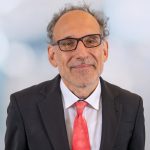Professor Tamer Cavusgil currently serves as Fuller E. Callaway Professorial Chair and Executive Director, Center for International Business Education and Research (CIBER), J. Mack Robinson College of Business, Georgia State University, Atlanta, U.S.A. A trustee of Sabanci University in Istanbul, Turkey, Tamer is also a visiting professor at Leeds University Business School, U.K., and The University of South Australia Business School.
Professor Cavusgil has been mentoring students, executives, and educators in international business for the past four decades.
He authored more than several dozen books and some 200 refereed journal articles. His work is among the most cited contributions in international business. Google Scholar lists him among the top scholars in the world in international business, international marketing, emerging markets, and export marketing.
He was awarded an honorary doctorate, Doctor Honoris Causa, by The University of Hasselt, Belgium in May 2014, and an honorary doctorate from the University of Southern Denmark in October 2017. In April 2018, Tamer was honored as an Honorary Professor by Atilim University in Ankara, Turkey.
Professor Cavusgil is an elected Fellow of the Academy of International Business, a distinction earned by a select group of intellectual leaders in international business.






















